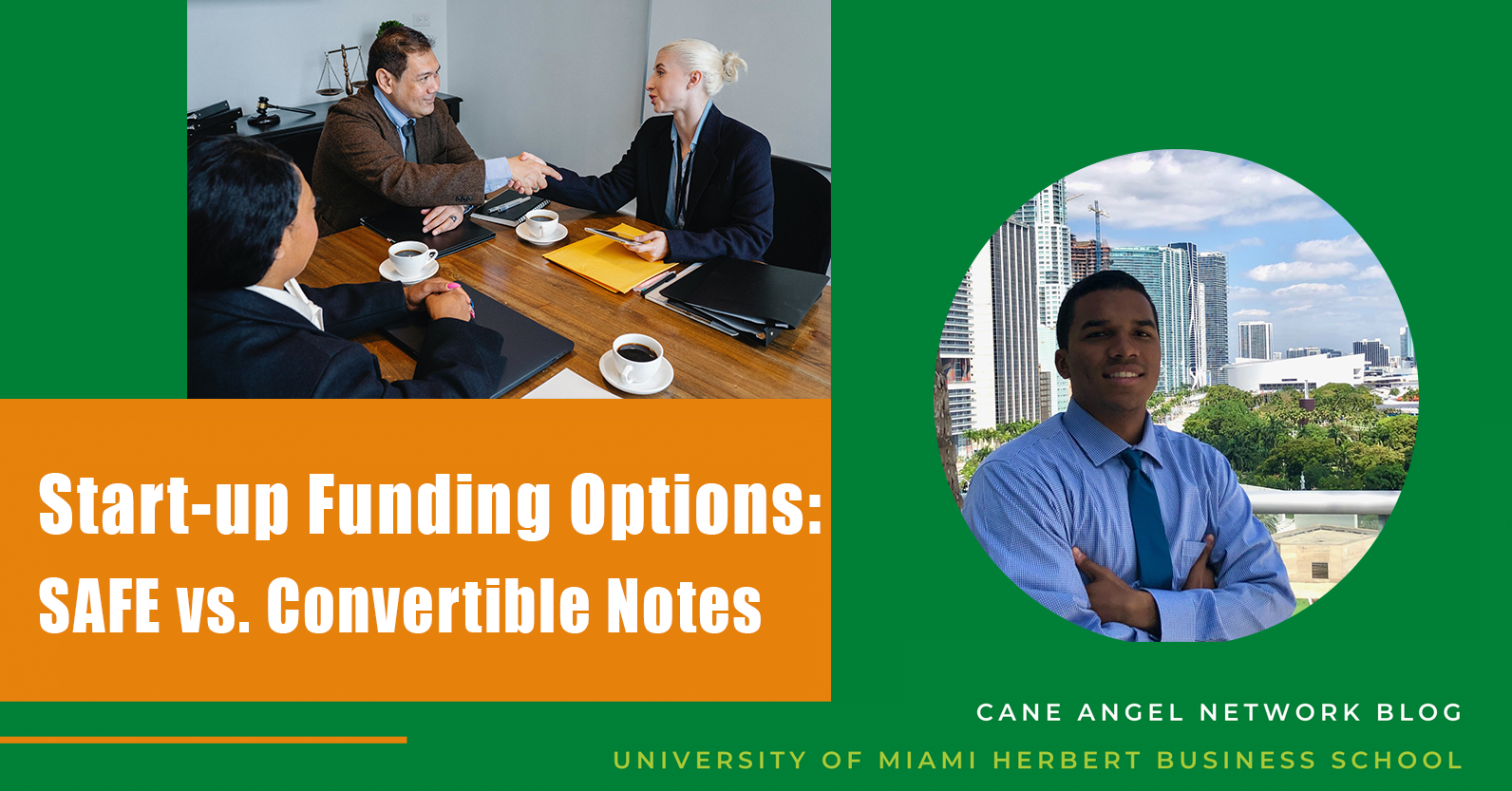
For an executive or founder of an emerging startup poised to achieve exponential growth, which funding strategy to pursue will be one of the most important decisions in scaling the business. So, founders must be able to decide which investment strategy is the right fit for their company’s goals. Here we will discuss two of the more popular financing structures: convertible notes and a simple agreement for future equity (SAFE) notes. This blog helps to highlight some of the differences between both fundraising options to help you decide which is best to finance your startup. There is no definitive correct answer as there are pros and cons for both. Our objective is to outline the differences in the two structures, so that start-up executives can make a more informed decision.
A convertible note is a hybrid security with debt and equity characteristics. In the startup ecosystem, convertible notes are often used by seed investors who invest in startups as a form of debt that eventually converts into equity at a future financing round. The investors’ debt will typically convert into shares of preferred stock, and therefore equity in the company, once the company reaches the next round of fundraising. However, because the convertible notes do not set a valuation for the company or its outstanding shares, the conversion price can only be set once a future financing round occurs and that investor sets a formal valuation
Two key features of a convertible note include the discount rate and valuation cap. The discount rate allows the convertible note holder to convert their shares into the company’s equity at a rate below the price set in the next funding round. This rewards the investor for funding the startup at an earlier stage than other investors. The valuation cap sets the maximum price at which the convertible note holder can convert into equity. This rewards the investor by setting a maximum price for their shares that may be below the price set for later investors. Thus, by investing at a lower valuation, investors are able to purchase equity ownership in the company at a price below the current valuation.
Another funding structure is the simple agreement for future equity (SAFE). The SAFE is a binding agreement between the investor and the startup that gives the investor the right to obtain future equity in the company when a priced round of investment occurs in the future without having to determine a specific price per share at the initial time of investment. This agreement can resolve many problems that arise, especially when the company fails to raise funds for another round of investing, or for disputes related to the price per share when a company performs better than expected.
Pros of convertible notes:
- Founders and investors do not have to agree on a valuation of the company upfront
- Easier to administer, quicker to execute, and cost less than issuing shares of preferred stock
- Easier for startups to close deals faster and advance to later rounds of funding quicker by allowing the founders to group prospective investors with separate notes capped a specified amount while permitting them to share in any increase in value of the startup in later financing rounds
Cons of convertible notes
- Low valuation caps can result in the investor holding a larger ownership percentage upon conversion of the note into equity, which dilutes the founders and future investors equity in the company at the next round of funding
- As a debt instrument, the convertible note includes an interest rate and maturity rate.
- Negotiation of convertible notes are known to be highly complex and technical
Pros of SAFEs
- Unlike a convertible note, the SAFE is not attached with an interest rate or a maturity date, which can save money for your cash-strapped startup
- Streamlines the seed investment process
- Your company is not entitled to owe any company assets or equity to the investor through a SAFE
Cons of SAFEs
- Sophisticated investors may refuse to invest in your startup if equity is promised only through a SAFE because it is riskier than a convertible note
- The conversion event could possibly never occur leaving the startup strapped for cash if it does not achieve its performance goals during a period of time
To summarize, both convertible notes and SAFEs are potential fundraising strategies for a startup to utilize in its growth and expansion. However, both have attributes which should force startups to consider which is the right fit for their future fundraising objectives.
This page was written by Pierre Craig III and Jeffrey Camp with contribution from Kayla Lawless. Mr. Craig is a member of the Cane Angel Network investment team and is pursuing his JD at UM graduating in 2023. Ms. Lawless is a member of the Cane Angel Network and is pursuing her JD at UM graduating in 2023. Mr. Camp is the Managing Director of the Cane Angel Network.




